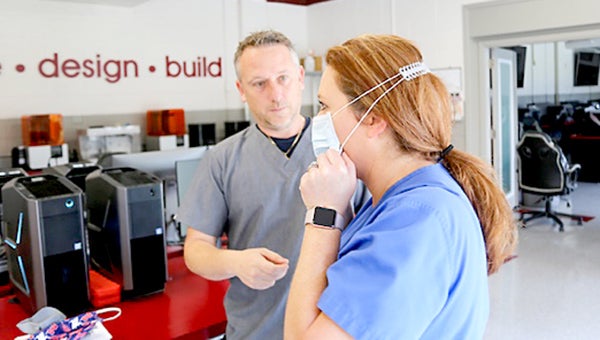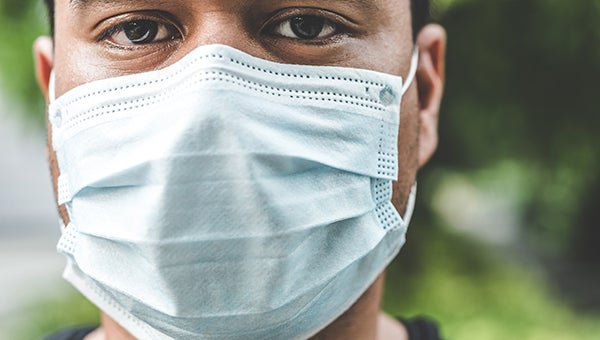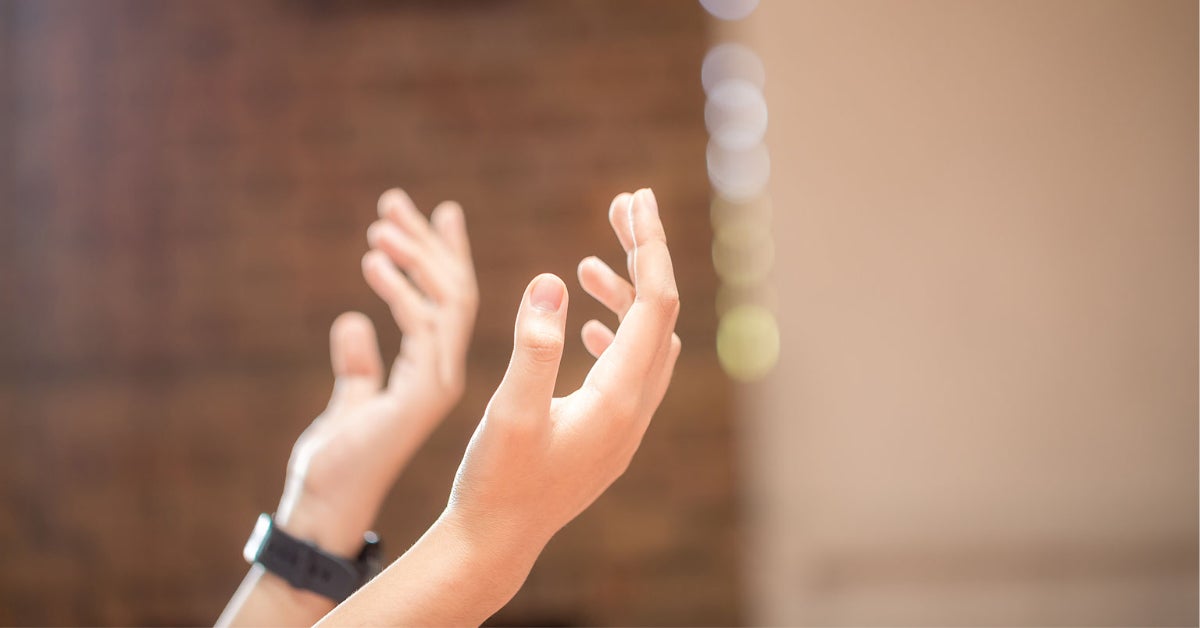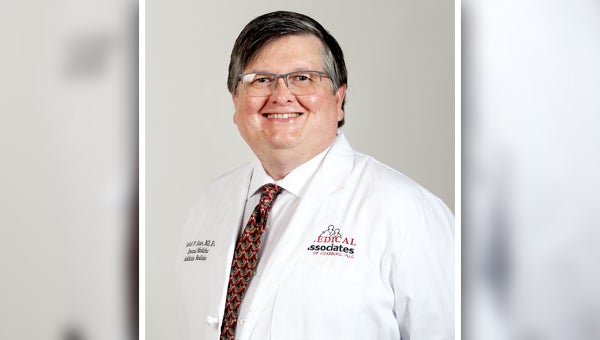Hinds supplies vital equipment to help healthcare workers in virus fight
Published 8:06 am Monday, April 20, 2020

- Wesley Smith, left, director of nursing for nurse practitioners at University of Mississippi Medical Center, and Sherri Smith, a respiratory therapist at the hospital, demonstrate how a tension release band works on surgical masks in use by medical personnel. (Hinds Community College/April Garon)
RAYMOND – Hinds Community College’s innovative Fab Lab is helping to make personal protective equipment, or PPEs, become safer and more comfortable in the fight to stop the spread of the coronavirus.
With the help of the latest in 3-D printing technology, the college is supplying tension release bands for surgical masks currently being used by doctors, nurses and other healthcare providers to treat patients stricken by the COVID-19 virus. All healthcare workers, whether they are directly treating coronavirus patients or not, are now wearing the masks.
The roughly 4-inch-long bands will hold the elastic strips of the surgical mask that usually go over the user’s ears. Such prolonged use can produce skin irritation, much like tight-fitting frames on eyeglasses. The strips will then provide comfort to healthcare workers who are wearing surgical masks all day. Also, they can prevent the user from having to touch the mask to adjust or remove it.
“The amount of time a nurse or doctor wears these masks has increased significantly,” said David Hollis, Robotics and AI Lab Tech Specialist at Hinds. “The elastic strips have a tendency to cut into the skin.”
Hollis and Drafting Technology instructor and Fab Lab director Phil Cockrell produced the first 250 of the bands inside the lab on the Raymond Campus for a unit at University of Mississippi Medical Center, with more requests expected once other facilities learn about them.
Hinds is among a number of entities around the world printing the bands and other protective equipment for health organizations. The cost to print the bands was about 58 cents apiece, Cockrell said, though college is donating the bands to UMMC at no cost.
The base technology for producing them was obtained from the U.S. Department of Health and Human Sciences National Institutes of Health 3D Print Exchange. Inside the lab, headed fibers of polylactic acid were fed through one of several 3D printers on hand to make the bands, all according to a set of instructions fed into a computer.
“The small fibers look like weed eater cord going into the machine,” Hollis said. “Our Prusa printers have done all the heavy lifting for the job.”
The Fab Lab is outfitted with 3-D printing machines, laser cutters and related equipment of varying sizes capable of etching designs or cutting flat sheet material such as acrylic or metal. The lab is financed through the Predominantly Black Institutions (PBI) grant, which has also made funding the printing of the mask release bands possible.





